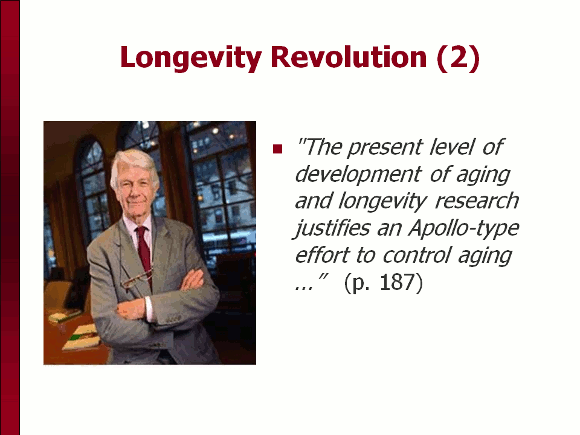Longevity in the 21st Century, PowerPoint
Demographic researchers Leonid Gavrilov and Natalia Gavrilova pointed me to a powerpoint of their latest presentation, titled How Long Will We Live in the 21st Century?:
We are pleased to share with you the power-point-presentation of our keynote lecture made recently at the international conference in Bermuda, which may be interesting to you.
The presentation is a good overview of presently established trends and viewpoints held in the mainstream of medical research. In essence, present trends lead to only modest gains in human life span if extrapolated - but extrapolation, always a dangerous undertaking, is particularly foolhardy in these early years of the biotechnology revolution. The oldest and most extensive demographic data is next to useless now:
Mortality trends before the 1950s are useless or even misleading for current forecasts because all the 'rules of the game' has been changed.
Further, the technologies that may lead to radical extension of the healthy human life span - such as realization of the Strategies for Engineered Negligible Senescence - are the most uncertain in terms of timing. The present pace of research is both rapid and unpredictable, and so is the time it will take for new paradigms of longevity science to become dominant in large research communities. The story of longevity in the 21st century is one of great unpredictability - but the flip side of that pronouncement is that the future is open to change. The more we do now to accelerate research and advocate longevity science, the sooner we'll see results.
